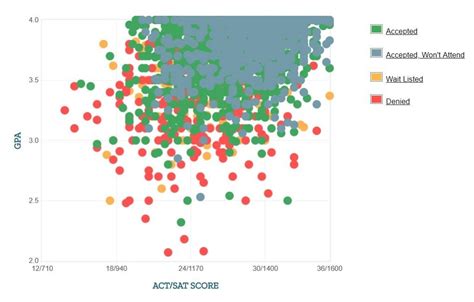Virginia Tech’s College of Engineering is renowned for its academic excellence and groundbreaking research, attracting prospective students from far and wide. Understanding the acceptance rate for various programs within the college is crucial for applicants aiming to secure admission. This article delves into the latest acceptance rates for Virginia Tech engineering, providing insights into the competitiveness of the programs and the factors that influence admission decisions.

Overview of Virginia Tech Engineering
Founded in 1872, Virginia Tech is a public land-grant research university located in Blacksburg, Virginia. The College of Engineering is one of the university’s most prestigious and largest schools, boasting over 10,000 undergraduate and graduate students. It encompasses 14 academic departments spread across three campuses: Blacksburg, Northern Virginia, and Roanoke.
The college offers a wide array of undergraduate and graduate engineering programs, including:
- Aerospace Engineering
- Biological Systems Engineering
- Biomedical Engineering
- Chemical Engineering
- Civil Engineering
- Computer Engineering
- Electrical Engineering
- Engineering Science and Mechanics
- Environmental Engineering
- Industrial Engineering
- Materials Science and Engineering
- Mechanical Engineering
- Mining and Minerals Engineering
- Nuclear Engineering
- Software Engineering
Historical Acceptance Rates
Over the past several years, the acceptance rate for Virginia Tech engineering has remained relatively stable. According to the university’s admissions data, the overall acceptance rate for the undergraduate engineering programs in Fall 2023 was 24%. This means that for every 100 applications received, approximately 24 were accepted.
Factors Influencing Admission Decisions
Admission to Virginia Tech’s engineering programs is highly competitive, and the university considers various factors when evaluating applications. These factors include:
- Academic Performance: A strong academic record, particularly in STEM (science, technology, engineering, and mathematics) courses, is essential. High school GPA and standardized test scores (SAT or ACT) hold significant weight in the admission process.
- Extracurricular Activities: Involvement in extracurricular activities, particularly those related to STEM, demonstrates a student’s passion and dedication to the field. Leadership roles, research projects, and community service are valued by the admissions committee.
- Essays and Personal Statement: The essays and personal statement provide an opportunity for applicants to showcase their writing skills, creativity, and why they are drawn to Virginia Tech engineering. These components should be well-crafted and articulate the student’s interests, motivations, and aspirations.
- Letters of Recommendation: Strong letters of recommendation from teachers, counselors, and mentors can provide valuable insights into a student’s character, work ethic, and potential.
Program-Specific Acceptance Rates
The acceptance rates for individual engineering programs at Virginia Tech vary depending on the popularity and competitiveness of the program. Here is a breakdown of the acceptance rates for selected programs in Fall 2023:
| Program | Acceptance Rate |
|---|---|
| Aerospace Engineering | 19% |
| Biological Systems Engineering | 22% |
| Biomedical Engineering | 17% |
| Chemical Engineering | 23% |
| Civil Engineering | 25% |
| Computer Engineering | 16% |
| Electrical Engineering | 18% |
| Industrial Engineering | 24% |
| Mechanical Engineering | 21% |
| Software Engineering | 15% |
Strategies for Increasing Your Chances of Admission
Applying to Virginia Tech engineering is a competitive process, but there are several strategies that applicants can employ to increase their chances of admission:
- Excel in STEM Courses: Focus on achieving outstanding grades in high school and college mathematics, science, and engineering courses. Participate in AP or IB programs to demonstrate your academic rigor.
- Explore Engineering Opportunities: Engage in extracurricular activities such as robotics clubs, science fairs, or volunteer experiences that align with your engineering interests. Seek out opportunities to conduct research or participate in internships to gain hands-on experience.
- Craft a Compelling Application: Pay meticulous attention to your essays and personal statement, ensuring that they highlight your passion for engineering, your academic accomplishments, and why you are uniquely suited for Virginia Tech.
- Obtain Strong Recommendations: Request letters of recommendation from individuals who can attest to your academic abilities, work ethic, and character. Choose recommenders who know you well and can provide detailed insights into your potential.
- Apply Early: Submit your application as early as possible, preferably by the Early Action or Early Decision deadlines. This can improve your chances of admission, as these applications are typically given priority consideration.
Conclusion
The acceptance rate for Virginia Tech engineering programs is competitive, reflecting the high caliber of students who apply to the college. By understanding the factors that influence admission decisions and implementing effective strategies, prospective students can position themselves for success in the application process. Virginia Tech engineering graduates are highly sought after by top employers, making it a worthwhile investment for those who aspire to pursue a career in this dynamic field.
